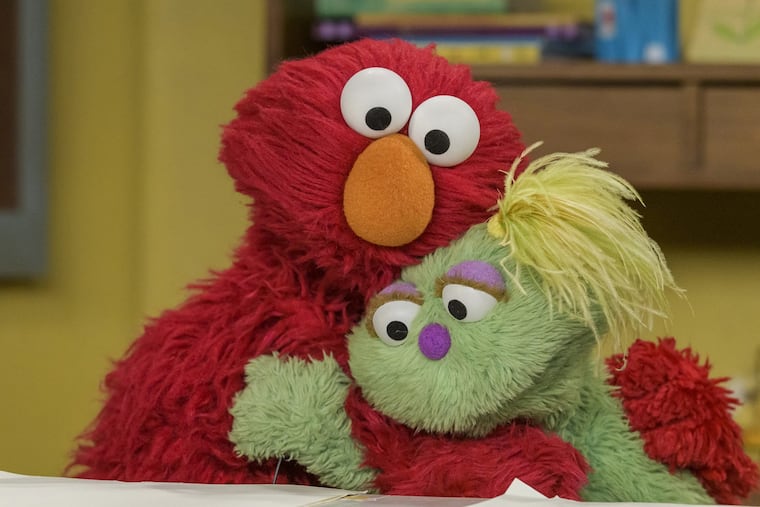‘For-now’ parents, bio parents, and Sesame Street: Changing the pattern of foster care
For too many years, the main goal of foster care was to simply provide a “bed” for the child – a safe place for them to stay until their parents could regain custody or they were adopted. But anyone raising a child knows they need much more than that.

Sesame Street has a brand-new neighbor, a young Muppet named Karli. She just moved in with her “for-now” parents, Dalia and Clem. When the always curious Elmo was invited for dinner, he asked, “What are ‘for-now’ parents?”
Dalia explained that “sometimes even mommies and daddies need help taking care of their children. Karli’s mommy has been having a hard time, so we are her foster parents, or her ‘for-now’ parents. We will keep her safe until her mommy can take care of her.”
Once again, Sesame Street takes the lead in educating kids and grown-ups about an issue impacting hundreds of thousands of families across the nation — foster care.
It’s about time. The number of U.S. children entering foster care is increasing annually, from an all-time low of 397,000 in 2012 to 443,000 as of August 2018. One of the major causes is the opioid crisis.
When parents and families are unable to care for their children, the responsibility falls on the state.
For too many years, the main goal of foster care was to simply provide a “bed” for the child — a safe place for them to stay until either their parents could regain custody, they were adopted, or they aged out of the system.
Anyone raising a child knows they need much more than that. Especially children who have experienced serious trauma and are separated from their families and all that is familiar.
Too often children remain in the foster-care system going from placement to placement without the consistency of a stable home. Too often the people who step up to become foster-care parents try their best but receive little ongoing support and guidance. And too often the birth parents are excluded from the process.
That is beginning to change across the country and in Philadelphia. The impetus is the Quality Parenting Initiative (QPI), a strategy developed by San Francisco’s Youth Law Center and based on five core principles:
Excellent parenting is the most important service we can provide to children and youth in care; children need families, not beds.
Child development and trauma research indicates that children need constant, consistent, effective parenting to grow and reach their full potential.
Each community must define excellent parenting for itself.
Policy and practice must be changed to align with that definition.
Participants in the system are in the best position to recommend and implement that change.
This message resonated with David Fair, deputy director of the local social and health services agency Turning Points for Children, who saw great potential in the approach and introduced QPI to the Philadelphia Department of Human Services.
Following the core principle of having each community define parenting excellence for itself, DHS is now reaching out to the “real” experts for solutions: those impacted by the system.
They’ve been hard at work, and things are changing.
Even the names used are new. Birth parents are now “bio parents” or “parents of origin.” Foster parents are “resource parents,” and all are encouraged to work together for the benefit of the child, helping to reduce the trauma of being removed from one home and transitioning into another.
Cynthia Figueroa, commissioner of the Philadelphia Department of Human Services, underscores this. “QPI is about changing expectations,” she said. “For example, we ask resource parents to welcome and love their foster child like their own, at the same time being available to be a mentor and support to that child’s family of origin.
“It’s also about elevating the voice of children’s parents of origin and building on the concept of shared parenting between foster and biological parent.”
One way this happens is with a new technique called “the Icebreaker,” which includes the bio parent(s), the case manager, and the child. It’s the first step to building a relationship between the parents and the new caregivers.
During “the Icebreaker”:
Foster parents share information about themselves and their home. They assure bio parents they are not trying to take their place, explain why they became foster parents, discuss how many other adults and children live in their home, establish the rules in the home, and describe what a day in their home looks like.
Birth parent shares information about the child, such as special needs, medical conditions, educational needs, food preferences, religious traditions or affiliations, extracurricular activities, bedtime and other routines, school or neighborhood friends, behaviors, fears, anxieties, hair care, and how to comfort the child.
Children have an opportunity to ask questions and contribute information that is important to them.
And, of course, most essential is continued parenting education and support.
Since Fair first introduced QPI to the city’s approach, the reforms have vaulted Philadelphia to the front lines of quality foster care in the U.S. — but it’s an ongoing process, and there’s still much to be done.
If you’re interested helping or learning more about QPI and foster care in Philly, please go to:
Anita Kulick is president and CEO of Educating Communities for Parenting and a founding member of the Pennsylvania Parenting Coalition.